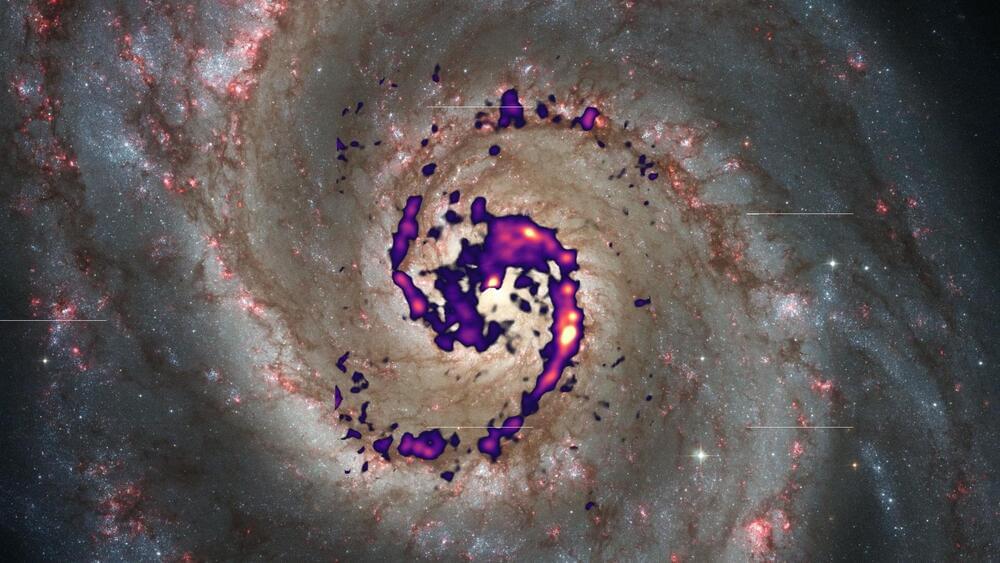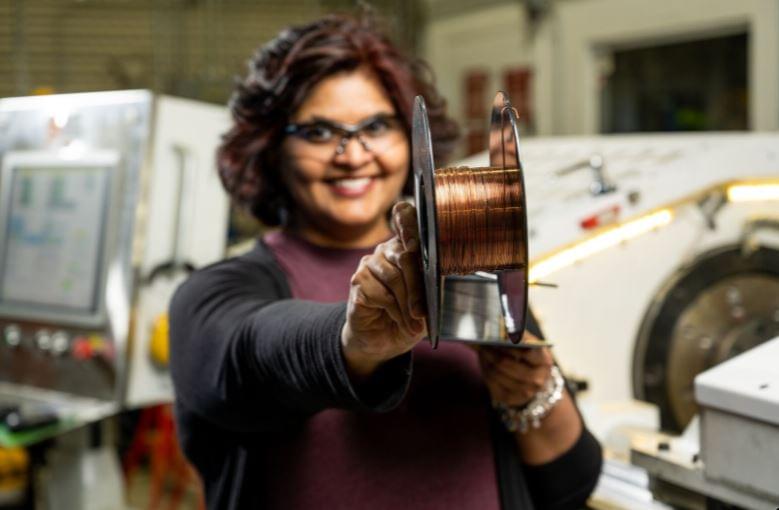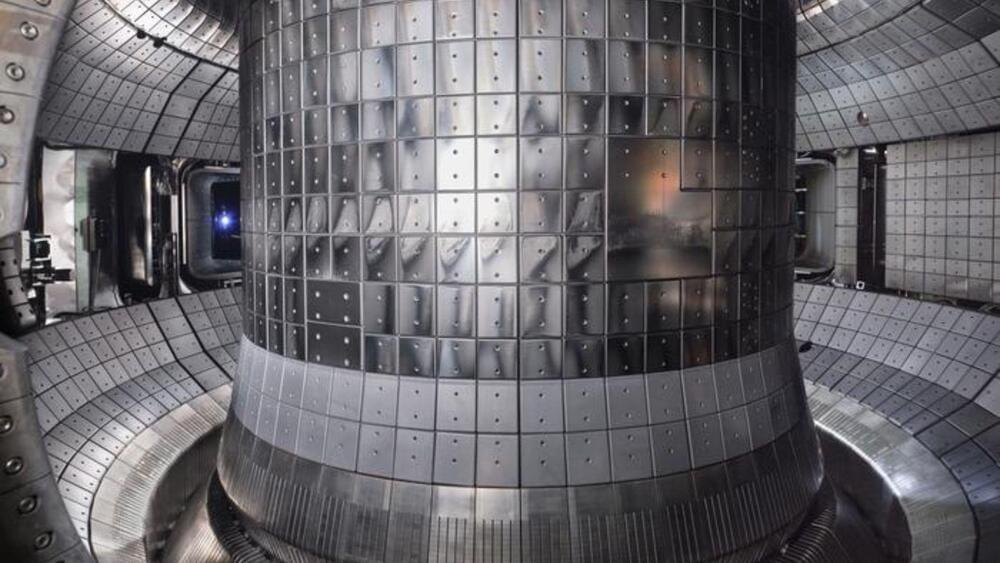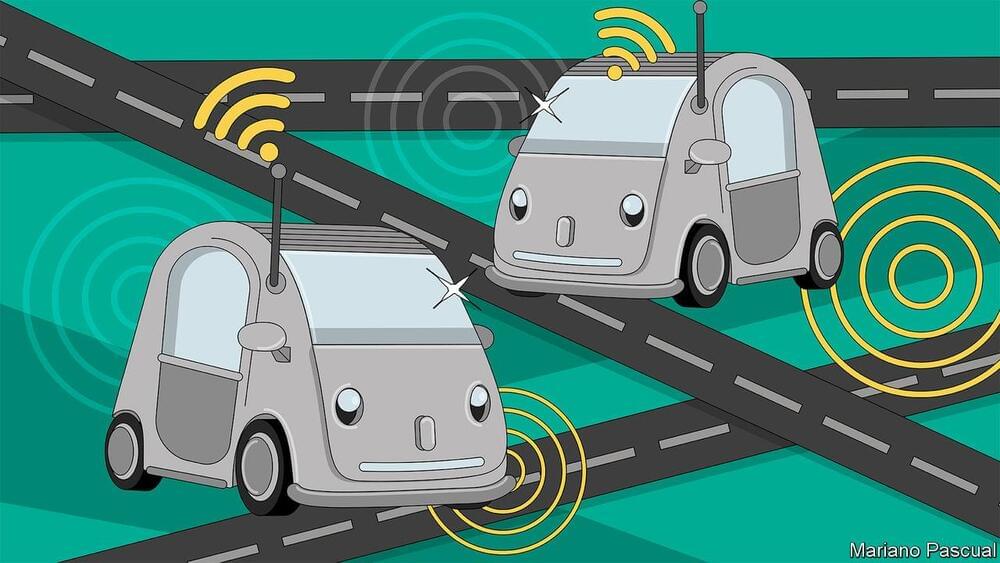Join us on Patreon! https://www.patreon.com/MichaelLustgartenPhDDiscount Links: Telomere, Epigenetic Testing: https://trudiagnostic.com/?irclickid=U-s3Ii2r7x…
Get the latest international news and world events from around the world.

Here Are Electrify America’s Top 5 Tips For EV Charging In Cold Weather
After a year of record electric vehicle sales, waves of people are spending their first winter with an all-electric car for the first time. They’d do well to pay attention to these five tips for charging in cold weather from the Electrify America charging network.
EVs, just like any other vehicles, operate the best in a certain window of temperatures, outside of which their energy consumption range or charging might be negatively affected.

Research Charts Stellar Birthplaces in the Whirlpool Galaxy for the first time
An international research team led by the Max Planck Institute for Astronomy (MPIA) and involving the University of Bonn has mapped the cold, dense gas of future star nurseries in one of our neighboring galaxies with an unprecedented degree of detail. The data will enable the researchers for the first time to mount an in-depth study of the conditions that exist within the gas during the early stages of star formation outside the Milky Way at the scale of individual star-forming regions.
Their findings have now been published in Astronomy & Astrophysics.
Paradoxically, hot stars begin to form in some of the coldest regions of the universe, specifically in thick clouds of gas and dust that straddle entire galaxies. “To investigate the early phases of star formation, where gas gradually condenses to eventually produce stars, we must first identify these regions,” says Sophia Stuber, a doctoral student at the MPIA in Heidelberg and the first author of the research paper.

Adding a Small Amount of Solid Carbon to Copper Boosts its Conductivity
A common carbon compound is enabling remarkable performance enhancements when mixed in just the right proportion with copper to make electrical wires. It’s a phenomenon that defies conventional wisdom about how metals conduct electricity.
The findings, reported in the journal Materials & Design, could lead to more efficient electricity distribution to homes and businesses, as well as more efficient motors to power electric vehicles and industrial equipment. The team has applied for a patent for the work, which was supported by the Department of Energy (DOE) Advanced Materials and Manufacturing Technologies Office.
Materials scientist Keerti Kappagantula and her colleagues at DOE’s Pacific Northwest National Laboratory discovered that graphene, single layers of the same graphite found in pencils, can enhance an important property of metals called the temperature coefficient of resistance.

Tungsten divertors to help Korean Artificial Sun to sustain 100m degrees
KSTAR, the Korea Institute of Fusion Energy’s (KFE) artificial Sun, has completed a significant modification that would allow it to function for longer periods at higher temperatures. KSTAR stands for Korea Superconducting Tokamak Advanced Research, an advanced nuclear fusion reactor constructed in 2007.
The development in this regard involved the installation of its newly developed tungsten divertors, “allowing it to operate for extended periods sustaining high-temperature plasma over the 100 million degrees,” according to a statement by the institute.
The team claimed they could complete a plasma experiment with the reactor equipped with the new divertor on December 21. In 2021, KSTAR set a new record by running at one million degrees and maintaining super-hot plasma for 30 seconds.

AMD vice president says AI-powered computers will soon understand what users want
Jason Banta, vice president of AMD, believes that integrating AI into computers will make them more personal, more secure, and better able to understand what users want.
Banta predicts wider adoption of AI-enabled laptops by 2024, with a “major inflection point” starting in 2025. The biggest challenge will be scaling down models to run efficiently on laptops.
In general, Banta expects to see a shift from cloud AI applications to smaller models that run directly on computers in real-time and can be trained locally.

Anne M. Andrews and Paul S. Weiss Public Lecture: Nanotechnology Meets Neuroscience and Medicine
In their public lecture at Perimeter on May 1, 2019, neuroscientist Anne M. Andrews and nanoscientist Paul S. Weiss outlined their scientific collaboration and explained the importance of communicating across disciplines to target significant problems. \
\
Perimeter Institute (charitable registration number 88,981 4323 RR0001) is the world’s largest independent research hub devoted to theoretical physics, created to foster breakthroughs in the fundamental understanding of our universe, from the smallest particles to the entire cosmos. The Perimeter Institute Public Lecture Series is made possible in part by the support of donors like you. Be part of the equation: https://perimeterinstitute.ca/inspiri…\
\
Subscribe for updates on future live webcasts, events, free posters, and more: https://insidetheperimeter.ca/newslet…\
\
facebook.com/pioutreach \
twitter.com/perimeter \
instagram.com/perimeterinstitute \
Donate: https://perimeterinstitute.ca/give-today
Euclid: Gate to the dark
ESA’s Euclid mission is on a quest to unveil the nature of two elusive ‘dark’ entities. As the renowned theoretical physicist Stephen Hawking remarked in 2013, “The missing link in cosmology is the nature of dark matter and dark energy”
During the last 70 years, scientists have made enormous progress in understanding the very initial phases of the Universe and its evolution to the present day. Thanks to advances in observations and theoretical modelling, a clear picture has emerged of how stars form, and how galaxies grow and interact with each other, coming together to form groups and clusters.
Yet, fundamental mysteries remain. 95% of the Universe appears to be made up of unknown ‘dark’ matter and energy. Dark matter and energy affect the motion and distribution of visible sources but do not emit, reflect or absorb any light. And scientists do not know what these dark entities actually are.
To address this question, Euclid will create a great map of the large-scale structure of the Universe across space and time by observing with unprecedented accuracy billions of galaxies out to 10 billion light-years. This is not easy, and making sure that Euclid is up to the task has required the expertise and dedication of many people over several years of work.
This video captures the journey behind the Euclid mission, from a human and intensely visual perspective. It shows tiny screws, winding cables and shiny surfaces in a whole new light, revealing how each piece comes together to form the space telescope. Be drawn in by awe-inspiring photos of the cosmos, and stay for the seemingly choreographed ballet of teamwork necessary to assemble and test the spacecraft, before being swept away by the emotion of the launch into space.
Euclid’s adventure has begun. With its observations during the coming years, it will help us uncover the missing link in cosmology and open the gate to the ‘dark’ side of the Universe.